This article was medically reviewed by Theodore Leng, MD. Dr. Leng is a board certified Ophthalmologist and Vitreoretinal Surgeon and an Assistant Professor of Ophthalmology at Stanford University. He completed his MD and Vitreoretinal Surgical Fellowship at Stanford University in 2010. Dr. Leng is a Fellow of the American Academy of Ophthalmology and the American College of Surgeons. He is also a member of the Association for Research in Vision and Ophthalmology, the Retina Society, the Macula Society, the Vit-Buckle Society, as well as the American Society of Retina Specialists. He received the Honor Award by the American Society of Retina Specialists in 2019.
There are 13 references cited in this article, which can be found at the bottom of the page.
This article has been viewed 67,008 times.
For many people with vision problems, contact lenses are a fantastic alternative to glasses; however, overwearing or improperly using contact lenses can be painful and potentially dangerous. By assessing your contact use and your level of comfort, you should be able to tell whether you need to take your contacts out or replace them altogether.
Steps
Determining Whether You Need To Take Out Your Lenses
-
1Check your recommended wear time. Your contact lenses may have a recommended wear duration, depending on the type of contacts you purchased. If you're unsure about your contacts, check the packaging or call your eye doctor to inquire about how long you can continuously wear your lenses. Most contact lenses fall into one of the following categories:[1]
- Daily wear — These lenses are often the least expensive, and therefore may be one of the most prevalent types of lenses. Daily wear lenses must be removed each night to be cleaned and disinfected.
- Extended wear — These lenses can be left in while you sleep and for several days in a row, but must be removed at least once every week for cleaning and disinfecting. Even with extended wear lenses, though, there is still a risk of eye infections if left in overnight or for too many days in a row. Thus, it is best to take your contacts out every night.
- Disposable lenses — This type of lens does not need to be cleaned/disinfected, but must be thrown away after the prescribed length of time has passed. Depending on the type of disposable lens you purchase, your lenses may need to be removed and replaced every day, every week, or every month.
-
2Recall whether you slept with your contacts in. One easy way to determine if you've been overwearing your contact lenses is to assess whether you've kept them in overnight. Some contact lenses are made for round-the-clock continuous use, but many need to be removed and soaked overnight.[2]
- Only wear your contact lenses overnight if your eye doctor has told you it is safe to do so.
- If you can't remember whether it's safe to leave your contacts in overnight, call or visit your eye doctor to ask for clarification.
- If your eye doctor has advised against leaving your contacts in overnight, you need to take your contacts out every night before bed. If you've been leaving them in, there's a good chance you've been overwearing them.
Advertisement -
3Assess whether your eyes are irritated. One of the most common results of overwearing contact lenses is eye irritation. This can develop suddenly or over time. Eye irritation is not usually a medically serious problem if you remove your contacts and care for your eyes right away, though it may indicate a more serious ailment. You may want to see your doctor if you experience any of the following[3] :
- Pain/discomfort in the eyes, which may include itchy, burning, or a gritty sensation
- Excessive tearing or production and discharge of other fluids
- Abnormal sensitivity to light
- Excessive redness
- Swelling
- Blurred or unclear vision
-
4Check for symptoms of giant papillary conjunctivitis. Giant papillary conjunctivitis (GPC) is a type of allergy-related eye infection. Though it has "conjunctivitis" in the name, it is not related to pink eye, and therefore is not contagious/infectious. GPC is caused by either an allergic reaction to the lens cleaner you use, the actual lens itself, the friction of a contact lens rubbing against your eyelid, or a buildup of debris on your contacts.[4] It can occur with both soft and rigid gas-permeable (RGP) contact lenses, although some studies suggest that you are more likely to contract GPC from wearing soft lenses. You should see your eye doctor immediately if you experience any of the following symptoms:
- Itching
- Burning
- Redness
- Blurred vision
- Swollen/droopy eyelids
- An increase in mucus draining from your eye
- The sensation that there is a foreign piece of debris in your eye
-
5Take out your contact lenses. If you've experienced any pain or discomfort, or if you've identified any of the above symptoms, you should take your contact lenses out immediately. Check the packaging to determine if you need to discard the lenses or simply take them out for cleaning/disinfecting. No matter what you decide to do with the lenses, it's a good idea to let your eyes rest without contacts for at least a few hours. Try wearing glasses or simply taking your lenses out at night before you sleep, and take care of your eyes if they're uncomfortable.[5]
- Use a re-wetting solution or saline eye drops to lubricate your eyes. This can reduce redness and discomfort.
- Wash your hands with soap and water before handling contact lenses. Dry your hands with a disposable paper towel.
- Use a finger from your non-dominant hand to hold your upper eyelid open. Use the middle finger of your dominant hand to hold down your lower eyelid.
- Using the index finger of your dominant hand, slide the contact off the center of your eye and outward or downward onto the white of your eye.
- Once the contact is off the center of your eye, carefully use your index finger and thumb to pinch the contact lens and pull it off of your eye.
- Be sure to put the contact lenses into a proper storage container filled with clean saline solution immediately after removing them from your eyes.
- Avoid wearing contacts again until you've spoken with your eye doctor about the irritation you experienced. It may have been a simply aggravation, but it could be a sign of more serious problems.[6]
-
6Limit your use of contact lenses. Even if your lenses are made to wear continuously, they can still cause discomfort to your eyes over time. Experts generally recommend that you avoid pushing the limits of what your contact lenses have been tested and approved for, as prolonged wear has been linked to discomfort and more serious vision problems.[7] If you wear contact lenses, you may want to try limiting your extended use, if at all possible.
- Take your contact lenses out to sleep. This is the easiest way to reduce your use of contact lenses, and many eye professionals recommend it.
- Switch to glasses when you get home from work/school. Contacts are convenient for when you can't or don't want to wear glasses, but if you're just relaxing at home you may want to give your eyes a break.
Assessing Whether You Need To Replace Your Lenses
-
1Check how often your lenses need to be replaced. The frequency with which you'll need to replace your contact lenses will depend entirely upon the type of contact lenses you wear. You may be able to find this information on the packaging of your contact lenses; if you cannot find this information on your contact lens packaging, call your eye doctor to find out how frequently you should be replacing your lenses.[8]
- Daily disposable lenses typically need to be replaced every day.
- Two week disposable lenses should be replaced once every two weeks.
- Monthly disposable lenses should be replaced once every month.
-
2Evaluate how long you've had these lenses. Once you know how often you should be replacing your lenses, you'll need to determine how long you've actually been using them. It's okay if you don't remember the exact date, but you should be able to identify approximately how long you've been using that pair of lenses. Going forward, you should take measures to keep track of the date you started using the lenses and how long they're meant to be worn.[9]
- It may be helpful to mark the start date on a calendar or on the contact lens packaging.
- Try setting a daily, weekly, or monthly alert for yourself on your cellphone so that you remember to replace your lenses. You can set this alert to repeat on a regular basis so that you never forget to replace your contact lenses when you're supposed to.
-
3Err on the side of caution. If you're unsure about how long you've had your current contact lenses, it may be best to be proactive and cautious. Discard any lens that you think is overused, especially if you've experienced any pain or discomfort. Immediately discard any lens that has become ripped or torn, as this can scratch your cornea or cause other types of damage to your eye.[10]
- It's better to have to pay for an extra pair of contact lenses than to risk damaging your eyes and altering your vision.
- Once you replace your lenses, begin keeping track of the date you open a new pair. Be aware of how long your type of contact lenses are meant to be worn, and don't overwear them going forward.
Caring For Your Eyes and Lenses
-
1Care for irritated eyes. There are many possible reasons why your eyes could become irritated while wearing contact lenses. Your eyes may not be getting enough air, you could be suffering from allergies/infection, or there could be some dirt/debris built up on your lens. The lens could also be torn, past its intended use date, or it could simply be the wrong shape for your eye. If your eyes become irritated from wearing contact lenses, whether you've overworn them or not, it's best to take them out and see an eye doctor before wearing lenses again.[11]
- Take your contact lenses out immediately and put them in your lens case with fresh contact solution. If you think the lenses might be past their intended use date or have a tear, throw them out right away.
- Use a re-wetting solution or saline eyedrops to lubricate your eyes. This should relieve some of the discomfort if your eyes are dry.
- Wear your eyeglasses instead of contacts for a while. It's best to avoid wearing contact lenses again until you've seen your eye doctor.
- Make an eye appointment and have your eyes evaluated for more serious medical conditions.
- See a doctor immediately if you experience pain, signs of infection, flashes of light, persistently blurred vision, or sudden loss of vision.
-
2Handle your contacts properly. Having dirty hands or handling your contact lenses wrong can lead to those lenses causing you pain and discomfort. Your eye doctor should inform you of how to handle your contact lenses, and you should follow those instructions carefully.[12]
- Wash your hands with soap and clean water before you handle your contact lenses or touch your eye at all.
- Dry your hands with a clean, disposable paper towel.
- Make sure you do not use any hand lotion, perfume, or scented oils before handling your contact lenses.
- If you wear hair spray, make sure you apply it to your hair before you insert your contact lenses. Spraying hair products with your contacts in could trap airborne particles against your eye.
- Apply makeup after putting in your contact lenses to avoid accidentally touching your lenses with makeup on your hands.
- Make sure your fingernails are trimmed short and filed smooth before handling your contacts. A sharp or jagged fingernail could tear a lens or scratch your eye.
-
3Clean/disinfect your lenses. It's important to clean and disinfect your lenses every day, even if you have extended wear lenses. Always use fresh contact solution, and don't use any other liquid to clean your contacts.[13]
- Avoid using water or saliva to clean your lenses. Your saliva harbors a staggering amount of bacteria, and water (even tap water) can contain microorganisms that are safe to drink but could cause serious damage to your eyes.
- Never reuse contact lens solution. Always pour out a fresh pool of solution every time you store your lenses.
- Clean your lens case. Empty out any old solution, wash the case with warm water, rinse it with contact solution, and let it air dry.
- To clean your lenses, you can squirt a little solution into the palm of your hand and carefully use the index finger of your other hand to swirl the lens around in the solution.[14]
-
4Replace your lenses and lens case on schedule. Talk to your eye doctor to ensure that you're replacing your contact lenses as often as you should be. In addition to replacing your contact lenses on a regular basis, you may not realize that you should also replace your contact lens case regularly. Most experts recommend replacing your case every three to six months, as dirt and bacteria can build up in spite of regular cleanings.[15]
- Keep track of when you should replace both your lenses and your case.
- Ask your eye doctor for a chart showing how often you should replace your case.
- You can also simply mark it on your calendar, write the date you started the lenses on their packaging, or set a reminder alert in your cellphone.
Warnings
- If your eye is hurting, take the lens out and wear glasses. If the discomfort persists, see your eye doctor as soon as possible.⧼thumbs_response⧽
- Never touch your eye without thoroughly washing your hands. Make sure you do not apply any lotions, perfumes, or scented oils before handling your contacts.⧼thumbs_response⧽
References
- ↑ http://www.mayoclinic.org/healthy-lifestyle/adult-health/in-depth/contact-lenses/art-20046293
- ↑ http://www.cdc.gov/contactlenses/pdf/11x17-contact-lenses-underwear.pdf
- ↑ http://www.mayoclinic.org/healthy-lifestyle/adult-health/in-depth/contact-lenses/art-20046293?pg=2
- ↑ https://www.aao.org/eye-health/diseases/what-is-giant-papillary-conjunctivitis
- ↑ https://health.clevelandclinic.org/what-does-sleeping-in-your-contacts-do-to-your-eyes/
- ↑ https://uihc.org/health-topics/dos-and-donts-contact-lens-wear
- ↑ http://www.ncbi.nlm.nih.gov/pmc/articles/PMC3314054/
- ↑ http://www.kellogg.umich.edu/patientcare/conditions/contact.lenses.html
- ↑ https://health.clevelandclinic.org/how-often-should-i-change-my-contact-lenses/
- ↑ http://coopervision.com/blog/how-avoid-ripping-contacts
- ↑ https://uihc.org/health-topics/dos-and-donts-contact-lens-wear
- ↑ https://www.aao.org/eye-health/glasses-contacts/contact-lens-care
- ↑ http://www.kellogg.umich.edu/patientcare/conditions/contact.lenses.html#care
- ↑ https://www.aao.org/eye-health/glasses-contacts/contact-lens-cleaning-solution-basics
- ↑ http://www.mayoclinic.org/healthy-lifestyle/adult-health/in-depth/contact-lenses/art-20046293?pg=2
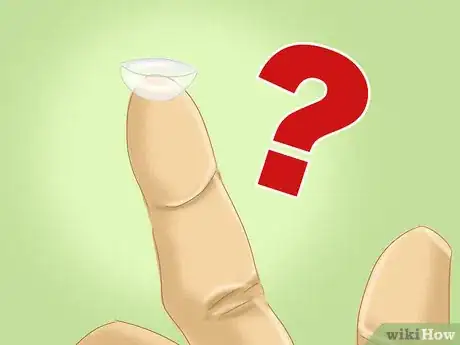
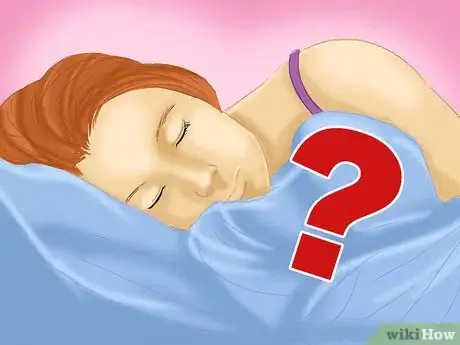
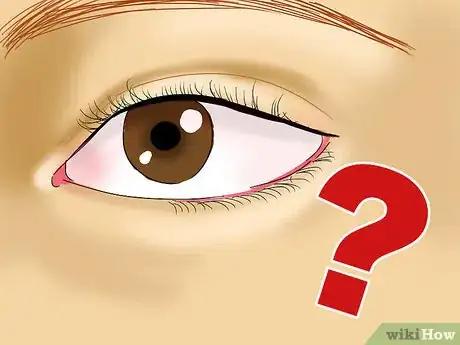
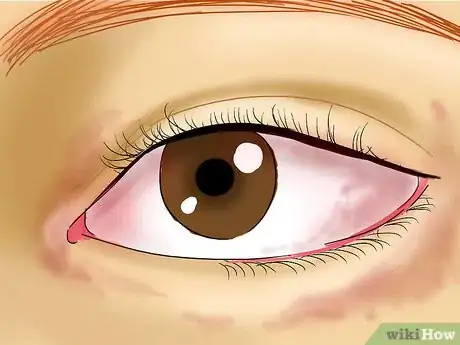
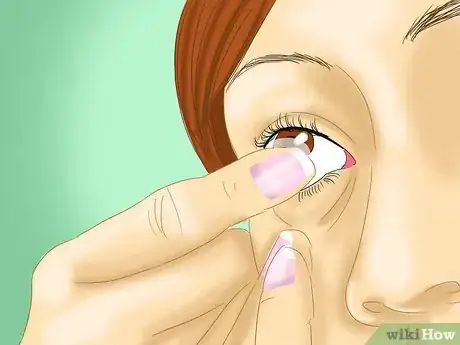
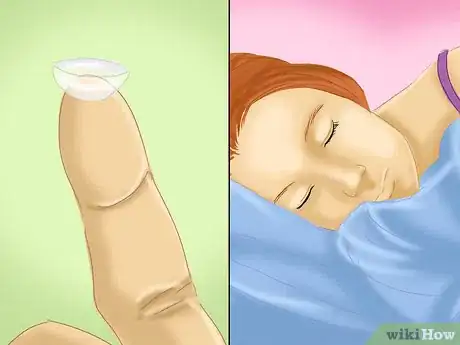
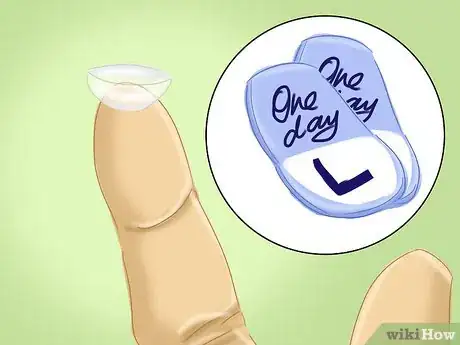
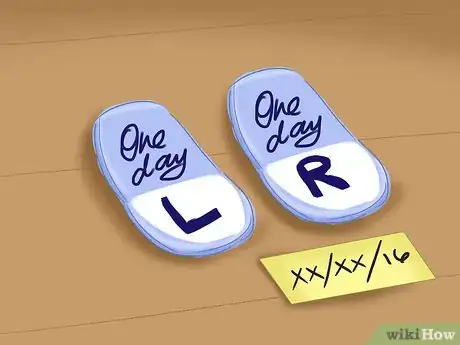
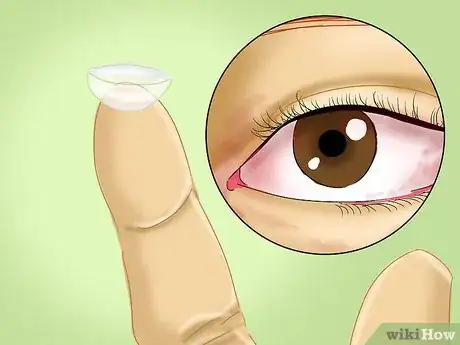
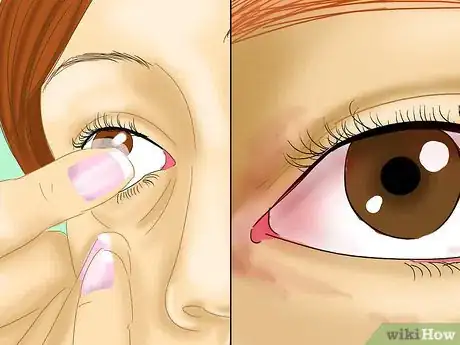
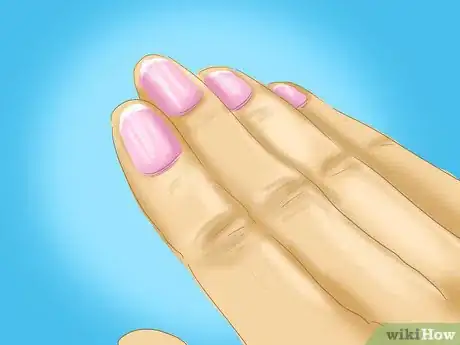
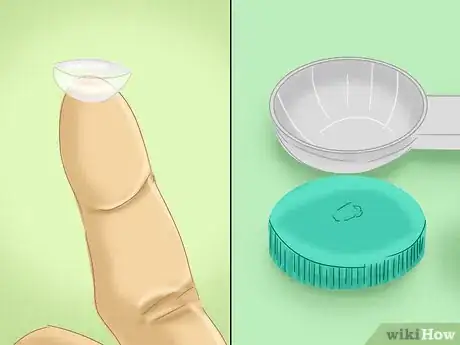
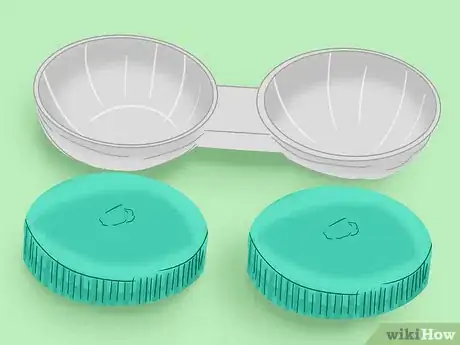
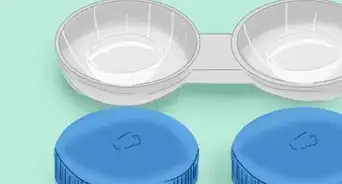
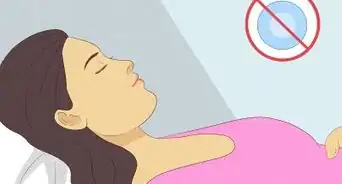
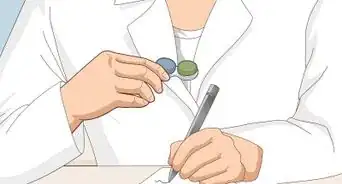
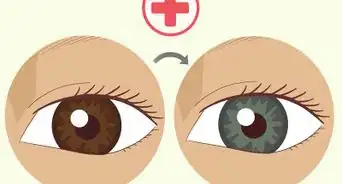
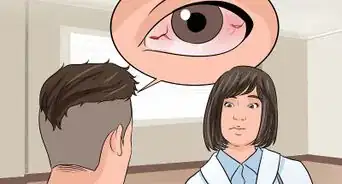
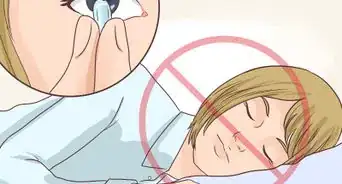
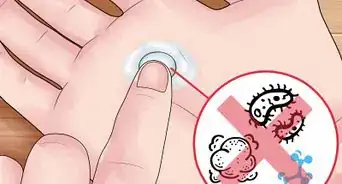
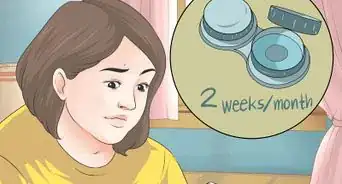
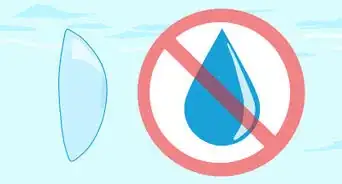
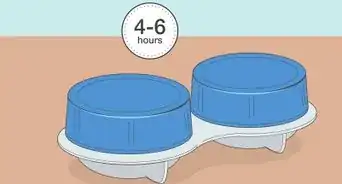
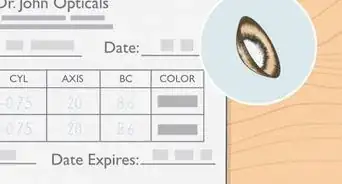
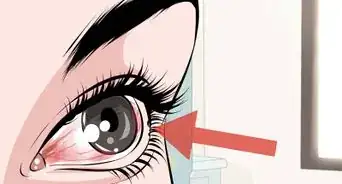







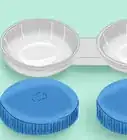
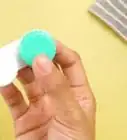
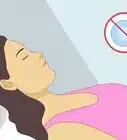
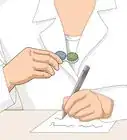



































Medical Disclaimer
The content of this article is not intended to be a substitute for professional medical advice, examination, diagnosis, or treatment. You should always contact your doctor or other qualified healthcare professional before starting, changing, or stopping any kind of health treatment.
Read More...